In the annals of ruses used to provoke fear in the voting public about government…
No discernible negative Brexit impact on British tourism so far
If you cast your mind back to 2016 and after in Britain, there were a series of shock horror predictions being made about the impact on the nation of leaving the European Union. The scaremongering didn’t dissaude the voters and the Referendum was determined in favour of leaving. It seems I lost some friends as a result of my support for the Yes vote – although in saying that one has to question the basis of the relationships in the first place. Most of the doomsaying predictions have not materialised although it is very hard to conduct research convincingly on this topic given that the Tory government has been so incompetent and that the World has lived through one of the greatest disruptions in human history (aka Covid). But I was looking at the most recent data released by the British Office of National Statistics on December 19, 2023 covering – Overseas travel and tourism, provisional: September 2023 – and it reminded me of the predictions that tourism from Europe would collapse and British people would find it hard having holidays on the Continent after Brexit. The data says that the prediction was like many – guff.
In a few weeks, I will be returning to Britain and Europe for the first time since early 2020.
I was in Italy doing a series of presentations when the Italian government introduced the emergency restriction in Northern Italy to deal with the outbreak of the then unknown virus.
I just made it back to Australia within days of our borders being shut tight.
And, in the meantime, Britain has left the EU.
I have often stood in long queues at immigration when entering Britain and observing EU passport holders waltzing through easily in a separate lane.
So much for the Commonwealth I used to think.
I will be interested to see for myself how those border arrangements will affect entry.
The predictions of doom were everywhere as the UK was going through the process of freeing itself from the neoliberal disaster that is the EU.
Don’t get me wrong, they didn’t free themselves from neoliberalism.
They have just reestablished their own legal autonomy and the neoliberalism is not part of their legal and constitutional structure as it is in the EU with the ideology being embedded in the very treaty that rules the bloc.
So, Britain could go very progressive immediately if the political class was so moved.
That is why I mention that the on-going incompetence of the Tories while in government has blurred what is undoubtedly renewed potential as a result of Brexit.
But in saying that don’t get the impression that I support the Labour view of things.
Far from it.
Starmer will be a disaster.
I am pinning my hopes for Britain on the emergence of a new political force that marries the best of the progressive tradition with a sophisticated understanding of the monetary system.
I might be hoping for a long time!
One of those predictions related to tourism.
Apparently there would be too much red tape at borders entering Britain which would discourage Europeans from taking holidays there after Brexit.
And the hassles of going to the Continent for British tourists without the free entry etc would have an equally negative impact on travel West to East across the Channel.
Well the latest data from the ONS tells us three things quite clearly:
1. The pandemic was a major disruption for tourism.
2. Brexit has not been a major disruption for tourism.
3. The cost-of-living surge arising mostly from (1) has also had a negative impact.
The first graph shows the total visits abroad by UK residents since January 2019.
The second graph shows the proportion of those visits to Europe (in percent).
We can say that the pandemic effect is apparent but there is no discernible negative Brexit impact visible.
What about travel east to west (that is from Europe to the UK)?
The next graph shows the total visits abroad by EU residents since January 2019.
Again a very similar pattern that is dominated by the pandemic and as the impacts of that were fading along came the cost-of-living pressures.
The next graph really provides some information as to the impact of Brexit – if it is discernable at all.
There has not been a dramatic shift in the patterns of tourist flow into Britain from the EU since Brexit.
The previous graphs have covered the aggregate data trends.
While the ONS data released this week does not allow us to break down the ‘purpose of visit’ statistics into destination, it does provide some more information.
The ONS separate the total visits in and out of Britain into holiday, business, visiting friends or relatives, and miscellaneous.
The first graph shows the UK residents trips abroad by purpose from January 2019 to September 2023.
Note that the business line is plotted against the right-hand axis.
If you consider the trends in the next two graphs against the data shown above, one can make fair guesses about the UK-Europe interactions without explicitly knowing where the trips by purpose shown below are going to and from.
Again it is hard to see any major Brexit-style impact.
The pandemic dominates.
The next graph shows the Overseas residents trips to the UK by purpose from January 2019 to September 2023.
Same story.
We clearly need more finely-grained data and a longer time series (well beyond the pandemic) before we can be definitive about the impacts of Brexit on travel between the UK and Europe and whether Brexit altered the purpose of the travel in any significant way – for example, reducing business travel in and out of Britain from Europe.
There are not clear impacts yet and so we can safely conclude at this stage that the predictions some years ago that leaving the EU would irrevocably alter those patterns does not seem to have been realised.
Conclusion
While many factors are in play here, I cannot find any discernible negative ‘Brexit’ impact on cross Channel tourism of the sort that the No advocates predicted.
The queues might be longer and there might be a few more forms to fill out but the data suggests that the numbers are broadly as they were pre-Brexit, with only the pandemic and the cost-of-living pressures showing up as having any noticeable impact.
As time passes, we will get more data which will allow us to decompose more clearly the pandemic effects from the Brexit effects.
Then we will be in a better position to assess the separate impacts.
But as the data stands up to September 2023 – the Brexit predictions on tourism have not been realised.
Today’s post is relatively short as I have to fly a bit today and have to tidy up several things before the break next week.
Episode 8 of the Smith Family Manga will be available tomorrow (Friday, December 22, 2023).
My blog will go on holidays next week and I will use the time to map out the structure of the book I hope to finish in the coming year on whether Capitalism has reached the end game and is in a losing position.
That is enough for today!
(c) Copyright 2023 William Mitchell. All Rights Reserved.
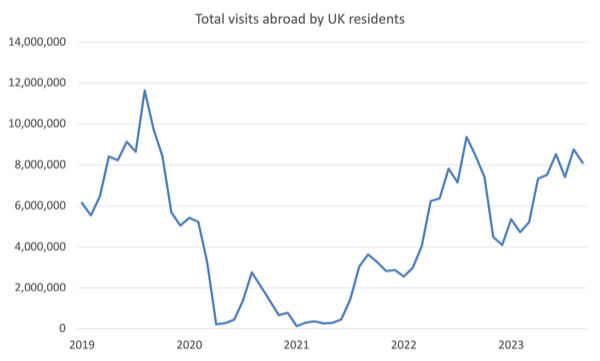
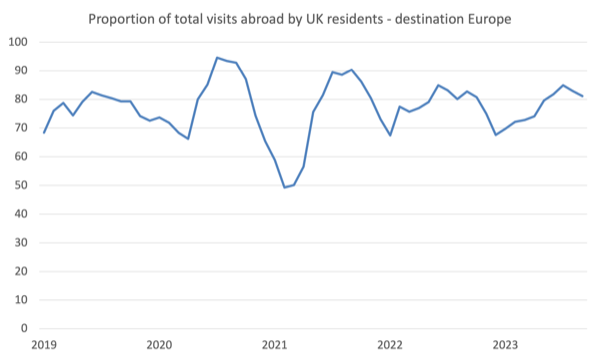
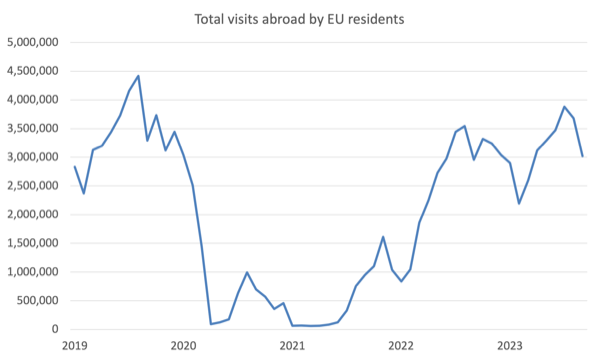
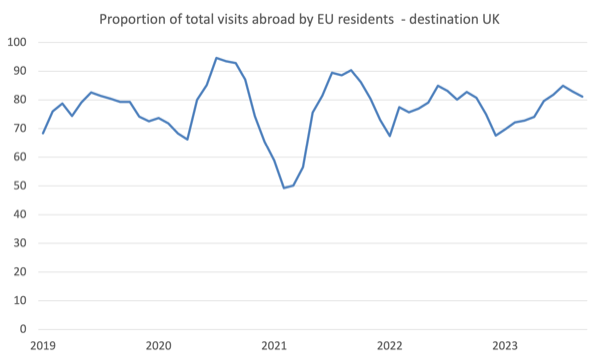
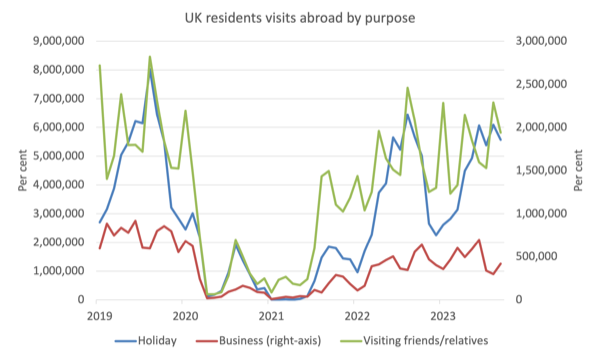
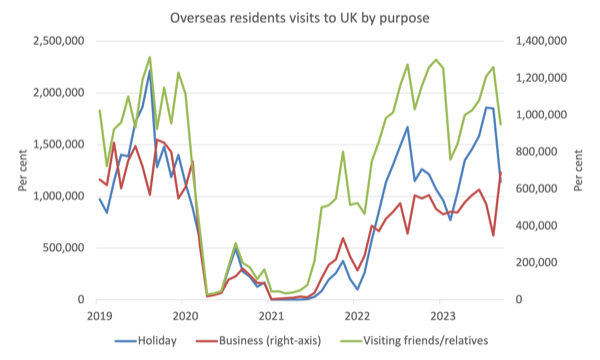
Watching British panel shows from afar, it seems like when Jimmy Carr or David Mitchell or the like stub their toe they mutter to themselves, thanks Brexit!
Britain does have an alternative, although the mainstream media is doing its best to ignore it. That alternative is called the Workers Party, with George Galloway as its leader. Most importantly, MMTer Chris Williamson has recently joined the Party as Deputy Leader. Get the word out, UK.
Dear Terry Gibson (at 2023/12/24 at 10:10 am)
I will be doing an event for the UK Workers Party in late January in London. I am looking forward to it.
best wishes
bill
Thank you, Bill. Living in Canberra, I shall be watching out on YouTube for your UK talk. By the way, the Canberra Times have actually published a few of my proMMT letters to the editor over the last 2 years. Am trying to get the MMT word out…